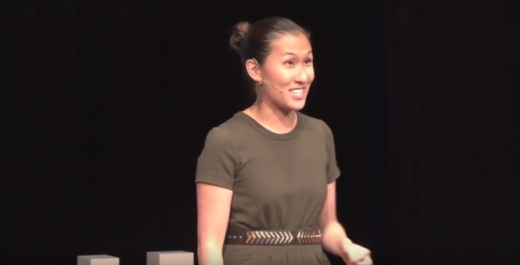The education world is full of assumptions, many of which aren't helpful to improving the quality of teaching and learning that happens in schools. The narratives from outside the industry can be harmful, but perhaps less obvious are the single stories of students and teachers told within the industry. That was a central message of Jennie Magiera's keynote at the International Society for Technology in Education (ISTE) conference. Magiera was inspired to talk about untold stories by Chimamanda Ngozi Adichie's TED talk, "The Danger of A Single Story."*
It's easy to repeat stereotypes about why there aren't enough girls or minorities in science, technology, engineering, and math fields. It can be tempting to point fingers at colleagues who resist change. And, it's all too common to assume a life story about students coming from specific backgrounds. But Magiera says one important role of a teacher is to fight against those single stories because while they are sometimes true, those narratives rarely provide the whole picture.
“As educators it’s our role to amplify the untold story of limitless potential," Magiera said. As the chief innovation officer for Des Plaines Public Schools, Magiera has a lot of experience with colleagues who are resistant to trying new approaches, especially if they involve technology. That used to frustrate her, in part because she had seen her own teaching change for the better when she began to question her assumptions about how to teach. But rather than allowing her frustration about "resistant colleagues" to dominate her life, Magiera discovered that these same people were actually "friendly dragons." More often than not, when she stepped back and listened to the problems they were having and helped them to problem solve, they became allies.
“As you’re thinking about the people who are at home, remember there might be friendly dragons right around the corner," Magiera said. And often the people who are most resistant to change have good reasons for being skeptical. Their experiences as educators have made them distrustful of big new initiatives and they are fiercely protective of their students, committed to doing what they believe is best. Listening and dialoguing with those who appear resistant can actually be the best way to thoroughly vet an idea, think through all the angles, and consider how to support implementation. And it's important for the pioneers to share the good and bad parts of the journey so that trying out new approaches feels less scary for those who fear failure.
“What I truly believe is technology should enhance our connection to each other," Magiera said. That could mean teachers forming professional learning communities and sharing insights and struggles, but it could also mean letting students tell their own stories. Chicago is often portrayed as a dangerous city, making the news only for the number of shootings each year. A Chicago colleague, Linsey Rose, used technology to help her students share their version of Chicago. In the process, they reached a much bigger audience with a powerful lesson about what kids hear and feel when the same single story is repeated over and over.


